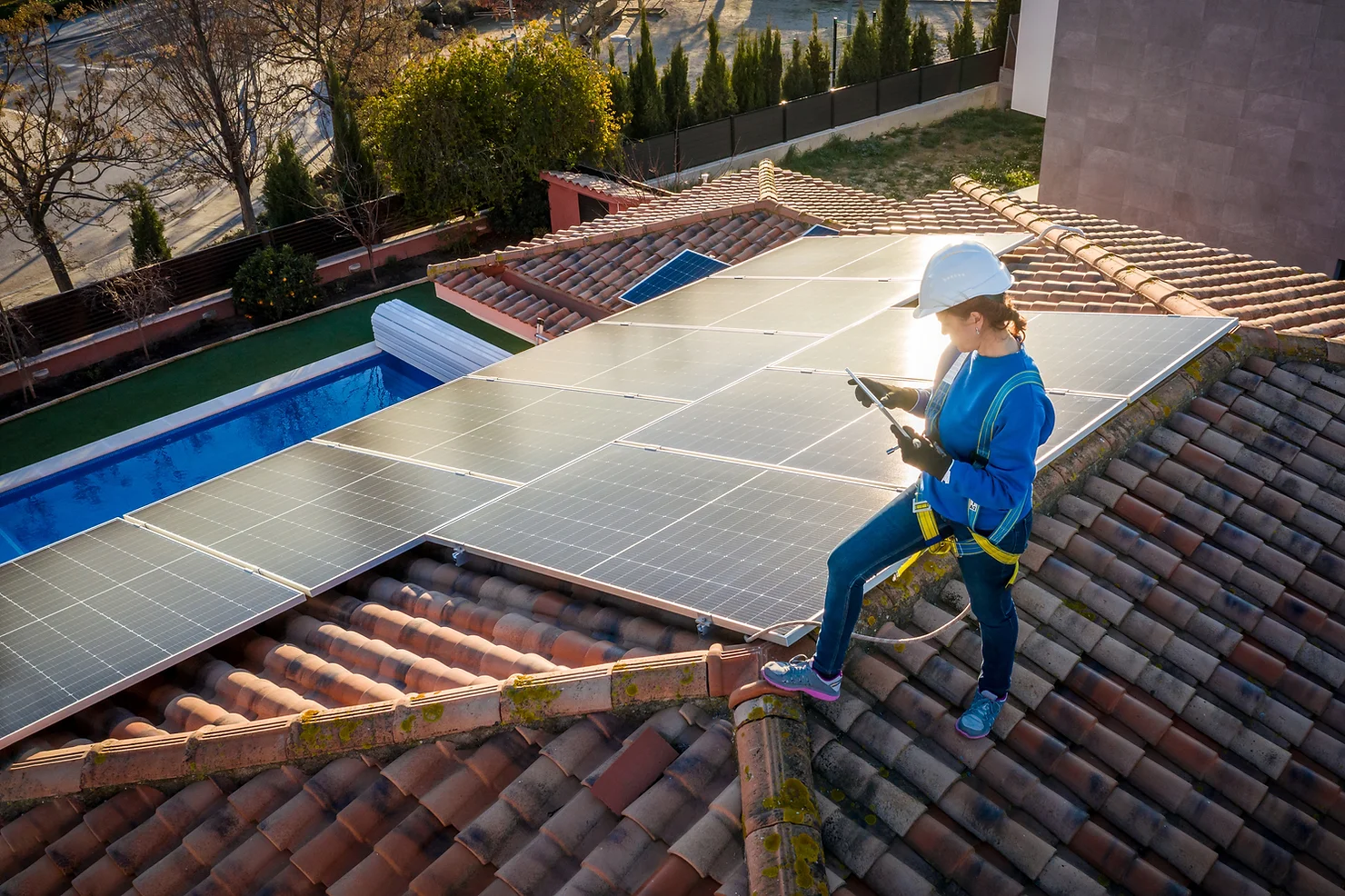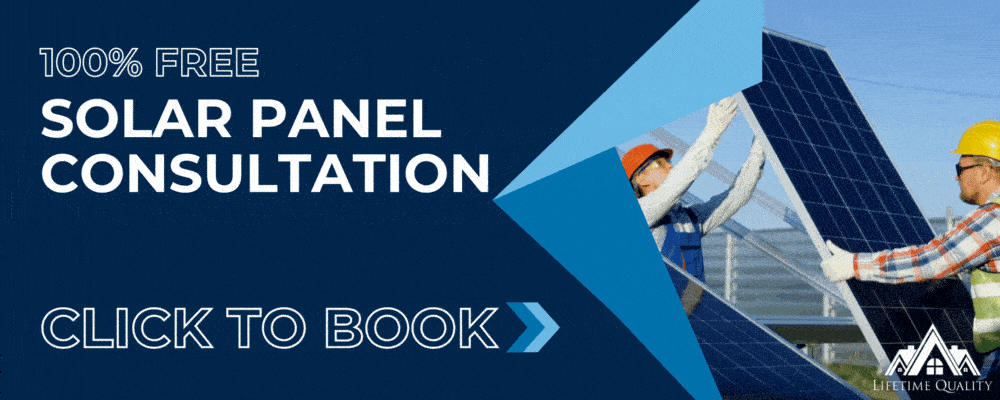
A Guide to Detecting Subtle and Serious Roof Damage Before It’s Too Late
Don't let roof damage go unnoticed. Learn the signs and prevent costly repairs. Protect your home with our expert advice …

Solar power is an increasingly popular choice for homeowners and businesses wanting to invest in renewable energy. However, the process of solar panel installation requires careful consideration and planning. This guide aims to provide you with all the essential information you need before making the switch to solar Below, we offer a list of the top things you need to consider before going solar.
Before proceeding with solar panel installation, one must evaluate the condition and age of the roof. If your roof requires significant repairs or is nearing the end of its lifespan, it would be beneficial to address these issues before installing solar panels. Installing solar panels on a roof that is in poor condition may lead to additional costs in the future, as the panels may need to be removed and reinstalled for roof repairs or replacement.
Lifetime Quality, a highly reputable company specializing in roof replacement can provide expert advice and services to ensure that your roof is in optimal condition before solar panel installation.
The structure and weight-bearing capacity of your roof are also critical factors. Solar panels, while not overly heavy, do add an additional load to your roof. Confirm that your roof can support the added weight of a solar panel system to avoid potential structural issues.
Solar panels require a substantial amount of space for optimal performance. The required space can vary depending on the size of your home and your energy consumption. As a rule of thumb, a minimum of 200 square feet is typically needed for residential solar installations.
The orientation of your roof plays a crucial role in the efficiency of your solar panels. For homes in the Northern Hemisphere, south-facing roofs are ideal as they receive the most sunlight throughout the day. However, solar panels can still perform effectively on east or west-facing roofs.
Before investing in solar panel installation, it's essential to have a clear understanding of your energy usage. This includes both your current usage and any anticipated changes in the future. An energy audit can provide you with detailed insights into your energy consumption patterns, helping you to establish a suitable size for your solar panel system.
While solar panels can operate in various climates, local weather conditions can impact their efficiency. Regions with consistent sunshine, like Arizona, are ideal for solar power. However, solar panels can still be effective in cloudier climates, like Ohio or Pennsylvania, albeit with slightly reduced efficiency. In such cases, additional panels may be required to compensate for the reduced sunlight.
Before proceeding with solar panel installation, it's essential to check local regulations and requirements for connecting your solar power system to the local electricity grid. This process, known as grid interconnection, often involves the completion of specific paperwork and may incur a one-off fee. In some areas, grid interconnection is mandatory for all solar installations.

Several federal, state, and local incentives are available to homeowners investing in solar power. These incentives can significantly offset the upfront cost of solar panel installation, making solar power a more affordable option.
There are various financing options available for solar panel installation. These include solar loans, leases, and power purchase agreements (PPAs). It's important to explore all available options and choose the one that best suits your financial situation.
There are several types of solar panels available, each with its own advantages and disadvantages. These include mono-crystalline, polycrystalline, and thin-film solar cells. It's crucial to understand the differences between these types and choose the one that best fits your needs and budget. Contact Lifetime Quality to learn about all of your options and to book a 100% free roof inspection.
Solar panel warranties are an important aspect of your solar investment. There are typically two types of warranties offered: a performance warranty and a product warranty. These warranties can provide added peace of mind, ensuring that your solar panels perform as expected for their intended lifespan.
Solar panels are generally low-maintenance, but some upkeep is required to ensure their longevity and efficiency. This typically involves regular cleaning to remove any dirt or debris that may accumulate on the panels. Some homeowners may choose to hire a professional maintenance service, while others may opt to handle the maintenance themselves.
Before investing in solar panel installation, it's important to consider any future changes that may impact your solar system. For example, if you plan to move in the near future, you'll need to consider the process and cost of transferring your solar system to your new home.
By considering these factors, you'll be well-equipped to make an informed decision about solar panel installation. Remember, the key to a successful solar installation lies in careful planning and preparation, as well as partnering with reliable professionals like Lifetime Quality. With their expertise and commitment to quality, you can rest assured that your transition to solar power will be a smooth and rewarding experience.